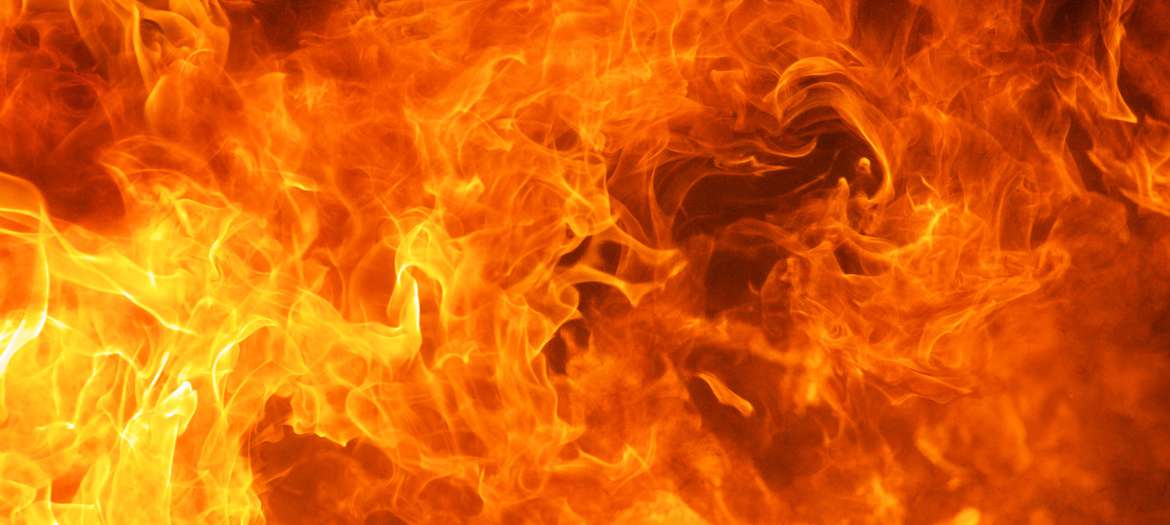SITUATION
Things get hot in rotary kilns, very hot in fact. In the production of cement, for example, the thermometer measures more than 1,000 degrees Celsius.

Things get hot in rotary kilns, very hot in fact. In the production of cement, for example, the thermometer measures more than 1,000 degrees Celsius.
The pipe diameters of the furnaces range from half a meter to more than eight meters. The challenge is to seal off the two pipe openings. For example, fire-hot process gases and cool outside air must be reliably separated from each other.
Rotary kilns from EagleBurgmann make sustainable contributions to environmental protection, energy efficiency and process reliability under high-temperature conditions.

Things can get hot in rotary kilns – very hot, in fact. For example, when it comes to manufacturing cement, the mercury often rises above 1,000 degrees Celsius. Despite these “volcanic” conditions, sealing systems from EagleBurgmann make lasting contributions to environmental protection, energy efficiency and process safety.
“If you want to picture what a rotary kiln looks like, imagine a large horizontal tube that slowly rotates,” says Jasmin Einhardt, Head of Product Management for Packings and Gaskets at EagleBurgmann. The kilns’ diameters range from half a meter to more than eight meters. “Our job is to seal the two ends of the tube,” she explains. This mostly involves the reliable separation of scorching hot process gases from the cool outside air. On the one hand, the toxic gases generated by processes at work in the kiln’s core cannot be allowed to escape into the atmosphere, polluting the environment. On the other, no outside air can be allowed to penetrate the system; this would disrupt the process and require additional primary energy to heat the cold outside air that was inadvertently introduced.
Just how important the sealing system’s quality is in light of sustainability aspects becomes clearer when you consider other applications of rotary kilns. They are used e.g. in the incineration of hazardous waste, a process in which no toxic gases can be emitted to the environment unfiltered. And it’s a similar story in the case of pyrolysis, which uses high temperatures to break down old tires or PET bottles for recycling, or to reclaim motor oil.
This recycling reduces the consumption of valuable natural resources. But it would also literally amount to playing with fire if the seals couldn’t withstand the extreme operating conditions. To be precise: thanks to several clever design elements and cooling measures, the seals are “only” exposed to temperatures of up to 300 degrees Celsius.
“Our seals consist of a proprietary carbon-fiber-based material with a special coating for better sealing and low friction values,” explains Application Engineer Markus Ittner. The seal housing for a rotary kiln rests on a rotating disc, just as a brake caliper does on a car’s brake disc. Pre-loaded springs hold the seals against the disc, providing the requisite contact pressure. EagleBurgmann’s sealing material is also self-lubricating, which minimizes friction losses and reduces the amount of primary energy needed to run the system. This aspect, too, makes the seals particularly sustainable.
The comprehensive package that EagleBurgmann offers for kiln manufacturers and plant operators also includes an expansion joint, which compensates for the expansion of the kiln shell produced by the tremendously hot process gases. Given the growing emphasis on environmental safety and energy efficiency, EagleBurgmann’s sealing system is becoming a more and more appealing choice for plant operators.

Between June 2017 and March 2019 the Hengli Group constructed an integrated refining and chemical complex in the Chinese harbor town Dalian where 20 million tons of crude oil are processed every year. EagleBurgmann advised the company Hengli concerning the selection of mechanical seals and supply systems for the whole plant and supplied more than 95 % of the components in use.

In Great Britain, a shortage in natural gas supply has severe consequences: Since the country switched from coal-fired to gas-fired power stations, a gas supply shortage makes households and industrial consumers not only vulnerable to failing heating and gas stoves, but also to power outages. Companies along the value and transportation chain of natural gas are therefore especially dependent on reliable equipment.

Things get hot in rotary kilns, very hot in fact. In the production of cement, for example, the thermometer measures more than 1,000 degrees Celsius. Sealing systems from EagleBurgmann, a company of the Freudenberg Group and EKK, make sustainable contributions to environmental protection, energy efficiency and process reliability under these "fiery" high-temperature conditions.

Our modern civilization is quite literally built upon cement. Today, building materials made from cement are used in buildings, roads, bridges, dams etc. Cement production is a heat-intensive process and causes thermal expansion in duct systems. To compensate this, Indian cement producer Ramco Cement needed fabric expansion joints with a diameter of several meters for two of their plants. On the basis of a close collaboration, EagleBurgmann was able to design components that increase the efficiency of the plant in the long run.

Frequent starts and stops are a severe test for gas-lubricated compressor seals. Installed in an Argentinean combined cycle power plant is an EagleBurgmann supply system that provides a continuous gas flow rate for the seals and adapts it to changing conditions. Since then, the operational reliability of the compressors has increased significantly.

Seals are a risk factor in the production of liquid crystals. If there is even the slightest contamination of the liquid crystals, this will later affect the image quality of the display. Read on to see which sealing solution Merck KGaA uses in paddle dryers for the production of liquid crystals.